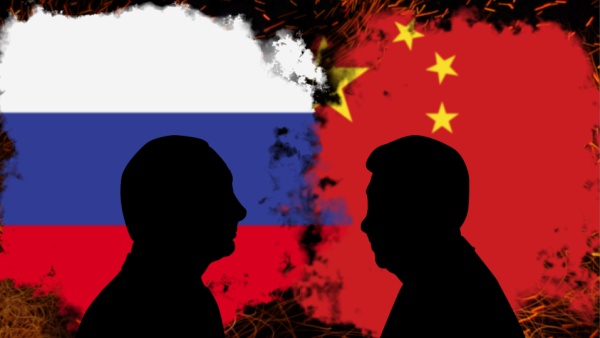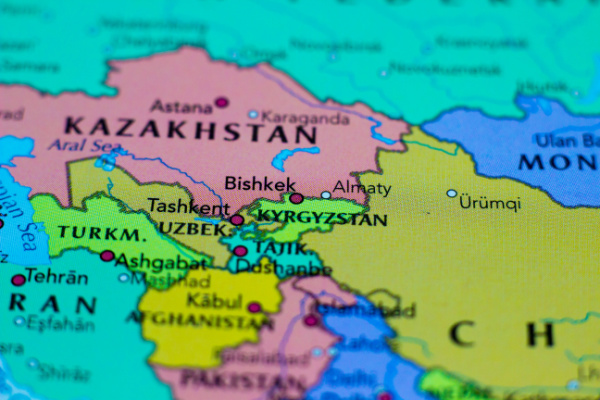Russia’s Retreat and Counterattack in Central Asia
By Stephen Blank
May 9, 2024
Russian power is retreating from the Caucasus and Central Asia, most prominently with the withdrawal of Russian peacekeepers from Nagorno-Karabakh and Washington’s concurrent decision to open discussions with Yerevan on military support. The same process is discernible in Central Asia in the lukewarm support for the war in Ukraine and Kazakhstan’s critique of that war. Other harbingers of the trend are the gradual erosion of Russian language use and China’s dominance in regional finance, trade, and investment. Nevertheless, Moscow still deploys substantial leverage over Central Asia and individual states and can conduct purely domestic policies that negatively affect Central Asian governments and citizens. Moreover, recent indicators suggest that Russia is launching a campaign to restore its hegemonic position in Central Asia. Thus, despite the war in Ukraine and the burdens it has imposed, current Russian policies in Central Asia amount to a determined resistance to its equally observable retreat.
Türkiye’s Energy Engagement in Central Asia and the Caucasus
Brenda Shaffer
March 27, 2024
In recent years, Türkiye has significantly increased cooperation with the states of Central Asia and Azerbaijan. One of the most important geopolitical developments in recent years in Eurasia is the emerging alliance between Türkiye, Azerbaijan, and Central Asia. This emerging alliance has given impetus to increased cooperation in the sphere of energy among the states. In addition, the increases in strategic collaboration in the region are also raising the prospects of establishment of cross-Caspian energy projects. Türkiye’s engagement in the energy sphere in Central Asia is likely to grow in 2024 and onward. 2024 is a pivotal year for Türkiye’s energy policies as its main contracts for gas imports from Russia and Iran expire at the end of 2024 and in 2026. Thus, this year Ankara will make decisions on its future natural gas supplier mix. Türkiye’s Sakarya gas field is also ramping up over 2024.
Why Washington Should Sign The Agreement Creating A Nuclear-Free Central Asia
By S. Frederick Starr
January 22, 2024
The absence of a region-wide and Central Asian-controlled coordinating institution leaves the region vulnerable to pressures from its major neighbors, Russia and China. To be effective, such an institution must be legitimized by an international agreement or treaty. The Central Asian states’ “Nuclear Free Zone” agreement meets this criterion and has been signed by China and Russia, but not by the U.S., the UK, or France. If the U.S. were to join this pact, the Central Asians will use it as an umbrella beneath which they can erect the security and economic arrangements they so desperately need.

Russian Influence in Turkmenistan: Rapprochement or Pragmatism?
Slavomir Horak
January 19, 2024
Turkmenistan underwent a serious rapprochement with Russia in recent years, particularly after the establishment of a ruling tandem with Serdar Berdimuhamedow as a formal president and his father, Gurbanguly Berdimuhamedow, who retained significant influence in Turkmenistan’s domestic and foreign policy. Due to a few viable alternatives, Russia represents the balancing factor for Turkmenistan towards the increasing Chinese influence over the country and the principal supporter of the regime. On the contrary, Turkmenistan remains a loyal partner in the region for Russia, where the most significant players (Kazakhstan and Uzbekistan) expressed their cautious approach towards Russia's advance in Ukraine.
A New Spring for Caspian Transit and Trade
Svante E. Cornell and Brenda Shaffer
October 17, 2023
Major recent shifts, starting with the Taliban victory in Afghanistan and Russia’s war in Ukraine have led to a resurgence of the Trans-Caspian transportation corridor. This corridor, envisioned in the 1990s, has been slow to come to fruition, but has now suddenly found much- needed support. The obstacles to a rapid expansion of the corridor’s capacity are nevertheless considerable, given the underinvestment in its capacity over many years.






 Silk Road Paper S. Frederick Starr,
Silk Road Paper S. Frederick Starr,  Book Svante E. Cornell, ed., "
Book Svante E. Cornell, ed., "